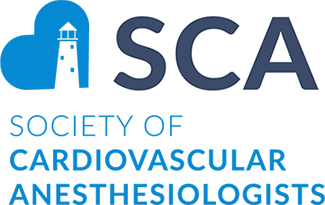2025 Nominating Slate
2025 Nominating Slate
The SCA Nominating Committee, chaired by Immediate Past President Dr. Andrew Shaw, MB, FCCM, FFICM, FRCA, is pleased to endorse the following candidates for the 2025 election cycle. Information about each candidate will be available in the February newsletter and through the online election system.
One position is available for President-Elect, among the following nominees:
- Douglas C. Shook, MD, FASE – Brigham and Women’s Hospital
One position is available for Secretary/Treasurer, among the following nominees:
- James H. (Jake) Abernathy III, MD, MPH, FASE, FAHA – Johns Hopkins University School of Medicine
- Mary Beth Brady, MD, FASE – Johns Hopkins University School of Medicine
- Michael P. Eaton, MD, FASA – University of Rochester School of Medicine
Two positions are available for Director-at-Large, among the following nominees:
- Theodore Cios, MD, MPH, FASA, FASE – Penn State Hershey Medical Center
- Charles Nyman, MBBCh – Brigham & Women’s Hospital
- Daryl Oakes, MD – Stanford University
- Alessia Pedoto, MD, FASA – Memorial Sloan Kettering Cancer Center and Weil Cornell Medicine
- Jacob Raphael, MD, FAHA – Thomas Jefferson University Hospital
- Jochen Steppan, MD, DESA, D. ABA, FAHA, FASA – Johns Hopkins University School of Medicine
Two positions are available for the Nominating Committee, among the following nominees:
- Richard D. Shue, MD, FASE – University of Washington School of Medicine
- Choy Lewis, MD – Northwestern University
One position is available for the CME Committee member, among the following nominee:
- Dalia Banks, MD, FASE – University of California
The 2025 online election for SCA leadership is scheduled to open on January 20, 2025.
ICCVA/IACA

SCA Affirms Importance of Patient-Physician Relationship
The Society of Cardiovascular Anesthesiologists (SCA) is an international organization of healthcare professionals whose mission is excellence and leadership in providing cardiovascular and thoracic patient care through education and research. SCA is not an advocacy organization. However, we support safe, equitable, and unobstructed access to all healthcare. SCA strongly objects to any interference in either the medical decision-making process or the physician-patient relationship.
Member Spotlight

Agnieszka Trzcinka, MD
Tufts Medical Center
Director, Cardiovascular Center Procedural Anesthesia
| Q & A | |
|---|---|
| Q | Where is your current place of practice? |
| A | I currently work at Tufts Medical Center in Boston. |
| Q | What do you like most about being a member of the SCA? |
| A | I am grateful for the opportunities through the SCA to further our amazing specialty. Working within the Scientific Program Committee has led to new conference content for our diverse membership. While collaborating with amazing colleagues within WICTA (Women in Cardiothoracic Anesthesia) special interest group, we created new webinar content designed specifically for our fellows to successfully navigate professional challenges within academic and private practice. Being part of the SCA offers tremendous opportunity for this productive collaboration. |
| Q | What do you most look forward to at the SCA Annual Meetings? |
| A | I feel inspired by colleagues and friends I meet during the SCA meetings. Our profession is very demanding of our time and energy. Drawing from experience and camaraderie of other SCA members inspires professional and personal development. |
| Q | Name one member of the SCA who has been an impactful mentor to you and why. |
| A | Dr. Stan Shernan has been a mentor since my training days at the Brigham and Women’s Hospital. I continue to be inspired by his unwavering commitment to professional excellence while maintaining a perspective of gratitude for support of family and friends. |
